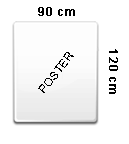Write Economics Research Paper
Writing an economics research paper requires a combination of technical writing skills, rigorous research, and a deep understanding of economic theories and concepts. This guide is designed to help you navigate through the process of writing an excellent economics research paper, from selecting a topic to proofreading the final draft. Here, you will find tips and advice on each step of the writing process, ensuring that you can produce a paper that is not only academically rigorous but also clear, concise, and effectively structured.
Need to Know About Economics Research Paper
An economics research paper is a detailed and comprehensive piece of writing that aims to explore a specific economic issue or phenomenon. It involves extensive research, data analysis, and the application of economic theory. The paper should have a clear thesis statement, a logical flow of arguments, and be supported by empirical evidence. It is essential to cite all the sources and references used in the research. The language should be formal and academic, and the paper must be free of plagiarism.
Economics Research Paper Example
For instance, if you are writing a research paper on the impact of fiscal policy on economic growth, your paper might start with an introduction that outlines the current economic situation and explains why this topic is relevant. The body of your paper would then present the theoretical framework, followed by a review of existing literature on the topic. After that, you would present your research methodology, data, and analysis. Finally, your paper would conclude with a summary of your findings and recommendations for future research.
Write an Economics Research Paper
To craft a compelling economics research paper, begin with the selection of a topic that not only piques your interest but is also pertinent to your course. Embark on preliminary research to refine this topic, honing in on a specific research question that will guide your investigation. Next, lay the foundation for your paper with a well-organized outline, which will serve as your roadmap throughout the writing process. As you draft your paper, vigilantly ensure that each paragraph is not only relevant to your research problem but also fortifies your overarching argument. The revision process is key; be prepared to revisit and refine your paper through multiple drafts, with a keen eye on the clarity, coherence, and consistency of your arguments. If you find yourself in need of guidance at any stage of this process, Write My Research Paper offers expert assistance from seasoned writers who can help you elevate your economics research paper to the highest standard.
Research Paper Topics in Economics
Choosing a topic for your economics research paper is a critical step. Some potential topics include: the effects of minimum wage increases, the economic impact of climate change, the causes of income inequality, the role of central banks in economic stability, the effects of immigration on labor markets, and the relationship between education and income. Make sure to choose a topic that is not too broad, so you can focus your research and make a meaningful contribution to the field.
Economics Research Paper Outline
Creating an outline for your economics research paper helps to organize your thoughts and create a logical flow for your arguments. Start with an introduction that includes your thesis statement. Follow this with a literature review section, a methodology section, a results section, and a conclusion. Each section should have sub-sections that detail the specific points you will cover. For example, the literature review might include sub-sections on previous research findings related to your topic.
Creating an Economics Research Paper Introduction
The introduction of your economics research paper should provide a concise answer to the research question, outline the scope of the paper, and present the thesis statement. It sets the tone for the entire paper and should engage the reader's interest. Make sure to provide some background information on the topic and explain why it is important. End the introduction with a clear and specific thesis statement that outlines the main argument of your paper.
Existing Literature Review for Your Economics Research
In this section, summarize and analyze the existing research related to your topic. Compare your paper to billions of pages and articles to ensure originality. Highlight the key findings, methodologies, and gaps in the current literature. This section should demonstrate your deep understanding of the topic and identify where your research fits within the broader academic conversation.
Explaining the Methodology for Your Economics Research
Clearly and thoroughly explain the research methods you used to gather data and test your hypothesis. This could include surveys, experiments, statistical analysis, etc. Be detailed in describing your process so that other researchers could replicate your study. Explain why you chose this method and how it is suited to your research question.
Presenting the Results in Your Economics Research
In this section, present the data you collected and the results of your analysis. Use charts, graphs, and tables to visually represent your findings. Be objective and avoid drawing conclusions in this section; simply present the data in a clear and organized manner.
Findings for Economics Research Paper
After presenting the results, interpret them in this section. Explain what the data means and how it answers your research question. Compare your findings with those of other studies, and explain any discrepancies. This section should clearly and directly support your thesis statement.
Concluding Your Economics Research Paper
In the conclusion, summarize the key findings of your research and restate the thesis in light of the evidence you have presented. Explain the implications of your findings and suggest areas for future research. Make sure your conclusion is strong and leaves a lasting impression on the reader.
Dos and Don'ts
Do conduct thorough research and use reliable sources. Don't plagiarize - always cite your sources. Do proofread and edit your paper multiple times. Don't ignore the formatting and citation style required by your instructor or the journal you are submitting to. Do seek feedback from peers or a mentor. Don't wait until the last minute - good research papers require time and effort.
FAQ's
Q: How long should an economics research paper be?
A: The length can vary, but most research papers are between 10 and 30 pages.
Q: Can I use online sources for my research paper?
A: Yes, but ensure they are credible and reliable sources.
Q: How do I choose a good topic for my economics research paper?
A: Choose a topic that interests you, is relevant to your course, and is not too broad or too narrow.
Final Thoughts
Writing an economics research paper is a significant undertaking, but with careful planning and diligent work, it is a task that is not only achievable but also deeply rewarding. By selecting a meaningful topic, conducting thorough research, and crafting a well-organized and clearly written paper, you are contributing to the body of knowledge in your field and honing your skills as a researcher and writer. Remember, the key to a successful research paper is in the details - so pay attention to them, and your hard work will pay off. look at this website
User login
Latest content
Co-funded by
Multi-type Content Repurposing and Sharing in Medical Education

Presentation instructions
Poster presenation





